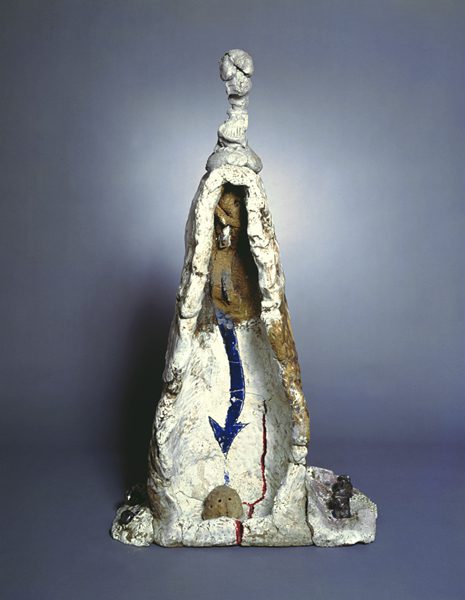Robert Arneson
Robert Arneson was born in 1930 in Benicia, California, where much of his early life was spent working as a cartoonist for a local newspaper. Arneson would later be known as a leading member of the early-1960s funk art movement, which was mainly a West Coast pop art style that focused on the absurdity of everyday household objects. Arneson exclusively contributed to the transformation of ceramics as a functional, pragmatic medium, turning it into a significant form of fine art. After receiving a bachelor’s degree in art education from Oakland’s College of the Arts and Crafts in 1954, Arneson began experimenting with the medium of clay while working as a high school art instructor. Instead of using clay in the conventional way that one would use to make traditional pottery, Arneson looked to explore the organic qualities of the clay itself. By using the medium in this manner, Arneson showed the great influence of Peter Voulkos, fellow artist and sculptor, noted for his abstract expressionist ceramic works.
.
For almost four decades, Arneson was a professor of ceramics at the University of California, Davis, where he began teaching in 1962. In 1975, he was diagnosed with cancer. During this time of illness, the tone of his clay sculptures took on a more cynical and dark flavor and dealt with issues of the human condition, murder, and society’s less fortunate. He also created much larger works that incorporated colored glazes, which made him part of a generation that combined the mediums of both painting and sculpture. After a long battle with cancer, Arneson succumbed to the disease in his hometown in 1992.
Works in Our Collection

Robert Arneson
The Pisser
Stoneware, 1963
51 x 27 1/2 x 11 inches
Gift of the LAM Contemporary Collectors Council and David Freund
1992.027






